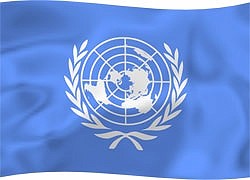Seta piti keskiviikkoiltana YK:n ihmisoikeusneuvostossa Genevessä Suomen ihmisoikeustilanteesta puheenvuoron, jossa se vaati Suomea laatimaan ohjelman seksuaali- ja sukupuolivähemmistöjen ihmisoikeuksien parantamiseksi.
Seta kiirehti yhdenvertaisuuslain, tasa-arvolain ja isyyslain uudistamista ja nosti esiin ihmisoikeuskasvatuksen tärkeyden. Ongelmia ovat Setan mukaan muun muassa koulukiusaaminen, transihmisten syrjäytyminen, lisääntymiskyvyttömyyspakko, intersukupuolisten lasten tarpeettomat leikkaukset ja sateenkaariperheiden lasten epätasa-arvoinen kohtelu.
Seksuaali- ja sukupuolivähemmistökysymykset jäivät marginaaliin kansallisessa ihmisoikeustoimintaohjelmassa, eikä konkreettisia toimia ole tehty tarpeeksi.
Suomi vastasi tänään ihmisoikeusneuvostossa YK:n jäsenmailta toukokuussa saamiinsa suosituksiin. Suomi hyväksyi Islannin antaman suosituksen, jossa kehotetaan Suomea tehostamaan toimia seksuaaliseen suuntautumiseen ja sukupuoli-identiteettiin perustuvaa ja perheoikeuksiin liittyvää syrjintää vastaan ja seksuaali- ja sukupuolivähemmistöjen ruumiillisen koskemattomuuden ja itsemääräämisoikeuden puolesta. Myös kansalaisjärjestöt saivat osallistua keskusteluun.
Setan puheenvuoron esitti hollantilainen Joyce Hamilton Setan kattojärjestöstä ILGA-Euroopasta (European Region of the International Lesbian, Gay, Bisexual, Trans and Intersex Association).
Setan puheenvuoro on luettavissa alla.
we would like to commend Finland for accepting the recommendation to increase its efforts in the field of discrimination on grounds of sexual orientation and gender identity, inter alia, by review of national legislation and administration with a view to eliminate discrimination against LGBTI people with regard to family and parental rights and the right to security and integrity of the person. We are looking forward to an effective and comprehensive implementation of the commitment.
Whilst we welcome the progress delivered to date by this Government, significant challenges still remain. Trans and intersex persons face serious discrimination. Gender nonconforming children face transphobic bullying in schools. Discrimination in the employment market is common, and many trans persons remain outside the labour force. Intersex children sometimes suffer serious mental and physical complications due to surgical operations that lack medical grounds.
Thus we welcome warmly the recent development that the Act on Equality between Women and Men is being supplemented with provisions promoting equality of trans and intersex persons and protecting against discrimination based on gender identity or gender expression.
For effective protection of lesbian, gay and bisexual persons against discrimination, the ongoing reform of the Non-discrimination Act is of utmost importance and needs to be completed in an ambitious manner and without further delay.
The government states that a working group will be appointed to examine the need to amend the Act on Legal Recognition of the Gender of Transsexuals.
We urge the government to proceed with this commitment very soon. Persons applying for gender marker change currently face degrading conditions such as infertility requirement that shows the legislator´s lack of understanding the everyday lives of trans persons, of which many already have children and families.
The government states that a possible need to amend family legislation will be discussed. Currently there are several ongoing legislative procedures where the equal treatment of LGBTI people´s families should be taken into account. Children should not be treated unequally depending on the gender of their parents. The reform of the Paternity Act provides an excellent opportunity to define legal parenthood in all situations.
We note that the recently adopted National Action Plan for Human Rights, praised by many states in the UPR discussion, has very few references to LGBTI people. This places a serious challenge on the government to show concrete commitment to policies to improve the human rights situation of LGBTI people. While many authorities are working on improving the equality of LGBTI persons, there seems to be need for a more coherent and coordinated policy. We suggest drafting a comprehensive LGBTI policy action plan and defining responsibilities for implementation and monitoring the plan.
On a more general note, human rights education is today unsystematic in many levels of the Finnish educational system. The newly established Human Rights Center is currently conducting a study about the state of human rights education in Finland and will provide recommendations. We encourage the Government to undertake effective measures to strengthen human rights education in the educational system as well as within public administration both on state level and local level.
Finally, we thank Finland for a constructive dialogue during the UPR process and stand ready for further interaction to ensure that all LGBTI people can enjoy their citizenship in full equality.
Thank you, Madam/Mr. President.
